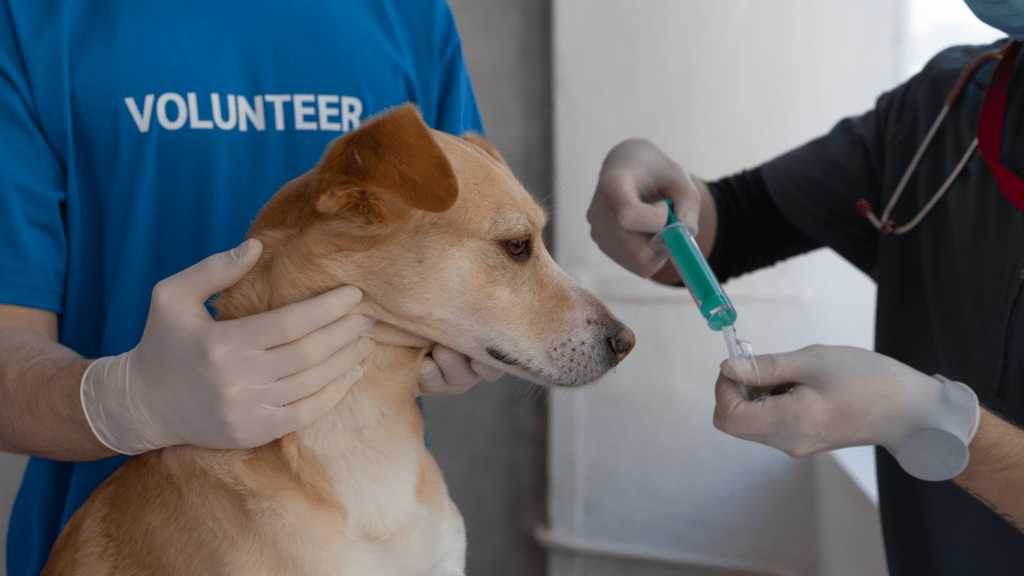Importance Of Pet Medications
Pet medications are crucial for maintaining a pet’s health. They treat various conditions, from infections to chronic diseases. For example, antibiotics combat bacterial infections, while anti-inflammatory drugs manage arthritis. Proper use of medications improves a pet’s quality of life and extends its lifespan. Neglecting necessary treatments can worsen a pet’s condition, leading to severe complications.
Medication isn’t only about treatment. Preventive medications, such as flea and tick preventatives, play a significant role in ensuring a pet’s overall well-being. Vaccines protect against diseases like rabies and distemper. Heartworm preventatives keep pets safe from dangerous parasites. By staying proactive, I safeguard my pet from potential illnesses.
It’s also essential to follow the prescribed dosage and administration guidelines. Incorrect usage, such as underdosing or overdosing, can have serious consequences. Ensuring that medications are given as directed by a veterinarian ensures their efficacy and safety. Avoiding self-prescribing or altering doses without professional guidance is critical.
Lastly, being aware of potential side effects and monitoring a pet’s response to medication helps catch adverse reactions early. Consulting a vet if unusual symptoms arise ensures that any issues are addressed promptly. Understanding and responsibly managing pet medications is fundamental for a pet’s long-term health.
Common Types Of Pet Medications
Medications play a critical role in maintaining the health of pets. Understanding the different categories can help owners make informed decisions about their pets’ care.
Prescription Medications
Prescription medications treat various ailments from infections to chronic diseases. Vets prescribe antibiotics to combat bacterial infections like urinary tract infections. Anti-inflammatories reduce pain and swelling in conditions like arthritis. Long-term medications manage chronic diseases such as diabetes and epilepsy, ensuring a stable quality of life for pets with ongoing health issues. It’s essential to follow the vet’s instructions for dosages and duration, as improper use can lead to resistance or unwanted side effects.
Over-The-Counter Medications
Over-the-counter (OTC) medications address common issues without a vet’s prescription. Flea preventatives keep pets free from pests, with examples including topical treatments and oral tablets. Dewormers eliminate internal parasites like roundworms, providing a crucial defense against infestations. Supplements support overall health, enhancing areas like joint function and immune system strength. Always ensure OTC products are designed for pets, as human medications can be harmful to animals. Following package instructions ensures safety and effectiveness.
How To Administer Pet Medications
Administering pet medications correctly is essential for ensuring your pet’s health. Each type of medication requires specific techniques for safe and effective administration.
Oral Medications
Oral medications come in various forms such as tablets, capsules, and liquids. To give a tablet or capsule, gently open your pet’s mouth and place the medication at the back of the tongue, then close the mouth and massage the throat to encourage swallowing. For liquids, use a syringe or dropper to place the medication inside the cheek, not directly down the throat, to prevent choking. Providing a treat afterward can help make the experience more pleasant for your pet.
Topical Medications
Topical medications include creams, ointments, and spot-on treatments. Clean the affected area before application to remove dirt and debris. Apply the correct amount directly on the skin, avoiding the fur. For spot-on treatments, part the fur and apply the medication directly on the skin. Monitor the area to ensure the pet doesn’t lick or scratch immediately after application, which could reduce efficacy or cause them to ingest the product.
Injectable Medications
Injectable medications are typically used for vaccines and certain treatments. These injections are often given subcutaneously (under the skin), though some require intramuscular administration. Follow your vet’s instructions exactly for proper administration. Use clean, sterile equipment, and choose an area of loose skin, like the back of the neck. Insert the needle at a 45-degree angle and inject the medication slowly. If you’re not comfortable with giving injections, it’s best to have a veterinary professional administer them.
Understanding and using the correct techniques for administering these medications can significantly improve your pet’s response to treatment and overall health.
Recognizing Side Effects
Monitoring a pet’s reaction to medication is essential for immediate and effective care. Identifying common side effects and knowing when to seek veterinary advice ensures a pet’s health and safety.
Common Side Effects
Side effects from pet medications vary depending on the drug and the pet’s individual response. Common side effects include:
- Gastrointestinal Issues: Diarrhea, vomiting, or loss of appetite often occur. These symptoms usually resolve within a few days.
- Allergic Reactions: Skin rashes, itching, or swelling might develop. Monitor for hives or difficulty breathing as these require immediate attention.
- Behavioral Changes: Lethargy, hyperactivity, or anxiety can appear. If these behaviors persist, consult your vet.
- Muscle Tremors or Weakness: Some medications, especially certain flea preventatives, might cause muscle tremors or weakness. Stop the medication and contact the vet if these symptoms occur.
When To Consult A Veterinarian

Veterinary advice is crucial if side effects are severe or persistent. Immediate consultation is necessary if:
- Severe Allergic Reactions: Symptoms like facial swelling, breathing difficulties, or collapse indicate an emergency.
- Persistent Gastrointestinal Issues: If diarrhea or vomiting lasts more than a couple of days, dehydration and other complications may arise.
- Unusual Neurological Symptoms: Seizures, disorientation, or severe lethargy are serious and need prompt veterinary intervention.
- Prolonged Behavioral Changes: Extended periods of anxiety, aggression, or depression might suggest an adverse reaction to the medication.
Recognizing and addressing side effects early can mitigate potential health issues and ensure a pet’s well-being.
Storage And Handling Of Pet Medications
Storing and handling pet medications correctly is critical for their effectiveness and safety. Exposure to incorrect conditions can decrease efficacy or cause harm. Follow these guidelines for proper storage and handling.
Storage Conditions
Proper storage maintains medication effectiveness. Store most medications in a cool, dry place away from light unless instructed otherwise by the vet. Some medications require refrigeration, so always check the packaging or consult your veterinarian for specific instructions.
Handling Tips
Handle pet medications with clean, dry hands. Contamination can compromise the medication’s safety. If the medication requires cutting or crushing, use a clean pill cutter or crusher. Avoid crushing medications that are not designed for it, as this can alter their effectiveness.
Safe Disposal
Dispose of unused or expired medications safely. Do not flush medications down the toilet or throw them in the trash. Many pharmacies or veterinary offices accept unused medications for proper disposal, which helps avoid environmental contamination and accidental ingestion by pets or children.
Labeling and Tracking
Clearly label all pet medications with the pet’s name, medication name, dosage, and administration instructions. Keeping a medication diary or log can help track dosages and responses, ensuring the correct administration schedule. This is particularly useful for households with multiple pets or complicated medication regimens.
Emergency Preparedness
Have a plan for medication needs during emergencies. Keep a backup supply of essential medications and ensure you know the nearest pharmacy or veterinary office that can fill prescriptions quickly. In case of travel, carry a sufficient supply and store it properly to avoid exposure to extreme temperatures.
Following these guidelines ensures pet medications remain potent and safe, contributing to your pet’s health and well-being.



 Founder & Pet Wellness Advocate
As the visionary founder of Pet Paw Shack, Kimberliene Sabinin is passionate about helping pet owners provide the best care possible for their furry companions. With a background in veterinary science and animal nutrition, Kimberliene brings years of experience in promoting pet health, safety, and well-being. Her mission is to empower pet owners with practical knowledge about proper nutrition, behavior training, and overall pet wellness.
Founder & Pet Wellness Advocate
As the visionary founder of Pet Paw Shack, Kimberliene Sabinin is passionate about helping pet owners provide the best care possible for their furry companions. With a background in veterinary science and animal nutrition, Kimberliene brings years of experience in promoting pet health, safety, and well-being. Her mission is to empower pet owners with practical knowledge about proper nutrition, behavior training, and overall pet wellness.
